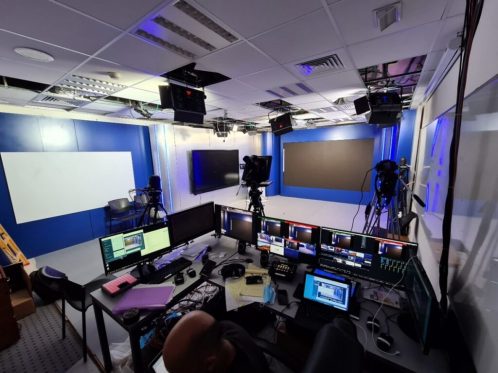In a joint decision by the Council for Higher Education (CHE), the Planning and Budgeting Committee (PBC), and the National Initiative ‘Digital Israel’ under the Ministry for Social Equality, stating that efforts should be made to promote digital learning as a tool to improve the quality of teaching and the learning experience in higher education institutions. The goal of these processes is to broadly make higher education accessible to all parts of the population and to strengthen the status of the Israeli academy in the world.
Call for Proposals 4 is one of a series of calls aimed at encouraging the development of massive open online courses (MOOCs) in the fields of engineering and science, in line with the defined objectives. The uniqueness of these online courses lies in the ability to watch and actively participate (practice and apply the material) freely available for the general public. Online courses serve as an efficient and flexible tool for acquiring and developing new skills, an opportunity for advancement and personal and professional development, and generally provide high-quality educational experiences on a large scale. The Technion creates MOOCs on two platforms: Coursera and EdX.
To ensure the quality of the recordings and the creation of online courses that are on par with those produced by leading universities worldwide, two video studios equipped with innovative technologies and equipment have been established, allowing for the filming, editing, and production of video content at a particularly high quality.
As part of this program, the Technion has been awarded the opportunity to produce 5 academic courses by leading lecturers in their fields, led by the Center for the Promotion of Learning and Teaching:
- Preparation in Mathematics / Dr. Aviv Tsenzor, Faculty of Mathematics.
- Linear Algebra A / Dr. Aliza Malik, Faculty of Mathematics.
- Introduction to Computer Science in C / Dr. Rami Cohen, Faculty of Computer Science.
- Discrete Mathematics for Computer Science / Dr. Gadi Alexandrovich, Faculty of Computer Science.
- Ethics in Engineering for Hi-Tech Professions / Dr. Nathan Penchas, Faculty of Civil Engineering.
In addition, the Technion has produced the following courses:
-
- Science Communication / Prof. Ayelet Baram Tsabari
- Ethics in Hi-Tech / Dr. Nathan Pinhas
- Organic Chemistry for Engineers / Prof. Morris Eisen
- Model-based Systems Engineering: Foundations / Prof. Dov Dori
- Model-based Systems Engineering: Advanced Approaches with OPM / Prof. Dov Dori
- Medical Cannabis for Pain Control / Prof. Elon Eisenberg
- New Product Development – develop your own new product / Prof. Avy Shtub
- Cracking the Creativity Code: Part 1- Discovering Ideas / Prof. (Emeritus) Shlomo Maital
- Startup Entrepreneurship Specialization (4 courses) / Prof. (Emeritus) Shlomo Maital
- Nanotechnology and Nanosensors / Prof. Hossam Haick
Some of the courses produced can be viewed on the “Technion Teaches” website or on the Campus IL platform. Campus IL is a flagship project of “Digital Israel” in the field of education and training, established to increase accessibility to higher education and digital learning, reduce social gaps, increase equal opportunities for diverse populations, and provide flexible training solutions for the evolving job market. The platform serves government offices, academic institutions, and other bodies in promoting online courses, academic and other, as well as professional training in Hebrew, Arabic, and English.



